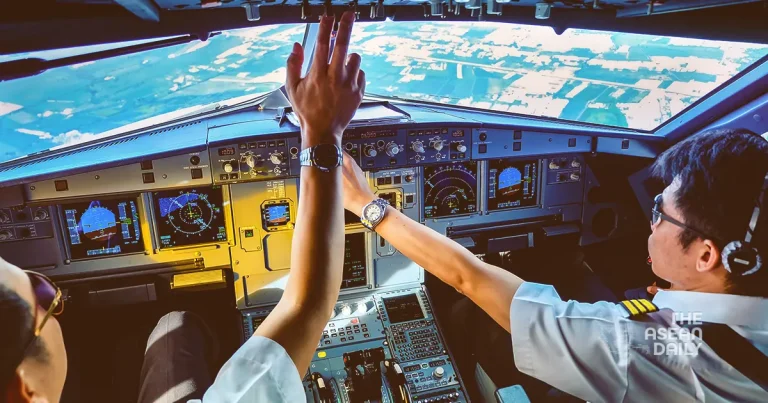3-9-2024 (BANGKOK) The Thai Pilots Association is sounding the alarm over plans to liberalise the hiring of foreign pilots for domestic routes through wet lease arrangements, warning of potential repercussions that could include another red flag from the International Civil Aviation Organization (ICAO).
Last month, the Department of Employment convened a meeting with the association, the Civil Aviation Authority of Thailand, and an airline that had approached former Prime Minister Prayut Chan-o-cha to seek permission for this liberalisation. The proposed move would grant temporary authorisation for foreign pilots to operate domestic flights within the kingdom.
However, this permission would be limited exclusively to foreign pilots associated with ACMI (aircraft, crew, maintenance, and insurance) leasing contracts, commonly referred to as wet leasing agreements, which encompass all four components from the supplier airline.
Teerawat Angkasakulkiat, the president of the Thai Pilots Association, expressed grave concerns regarding the potential ramifications of such a move. According to the Labour Ministry, which maintains a list of prohibited occupations for non-Thai nationals, foreign pilots are currently barred from operating domestic flights within the country.
While the department discussed the issue with stakeholders and agreed to temporarily relax this rule for a six-month period during the upcoming high season to mitigate the impact of a supply shortage, Mr. Teerawat warned that granting such permission could severely undermine the Thai aviation industry.
Firstly, he highlighted that as Thailand has not officially ratified Article 83bis of the Chicago Convention, which allows the state of registry to transfer supervisory responsibilities for an aircraft to the state of the operator, granting this type of permission might breach aviation laws and jeopardise the country’s standing.
In a worst-case scenario, Thailand could incur a red flag from the ICAO, reminiscent of the 2015 incident when the country failed the organisation’s safety assessment, effectively prohibiting Thai carriers from expanding their routes to other nations.
“The authorities might claim that the amendment is temporary, but what will happen if more airlines follow suit by taking advantage of this change? Then authorities cannot prevent other carriers from conducting the same practices, as they could be accused of discrimination,” Mr. Teerawat cautioned.
Moreover, allowing foreign pilots through wet lease contracts would not necessarily benefit the country, as the cost of such agreements is relatively high for airlines, he argued. Such arrangements do not guarantee that passengers will enjoy lower fares based on reduced operational costs.
A pressing concern for the association is the lost employment opportunities for the 1,736 Thai pilots who remain unemployed, including recent graduates and those laid off during the pandemic. Mr. Teerawat emphasised that with each pilot earning an average of 3.5 million baht per year, the collective income generated within the country could reach a staggering 6 billion baht if these unemployed pilots were to secure jobs as the aviation industry rebounds in the coming years.
The association, which boasts a membership of approximately 700 pilots, has urged the incoming government to carefully consider this issue when the department submits the agenda to the new cabinet for consideration.
Additionally, Mr. Teerawat revealed that the association aims to address other pressing matters, such as obstacles preventing local pilots from obtaining flying licences, underscoring the broader concerns surrounding the development and sustainability of Thailand’s aviation sector.




